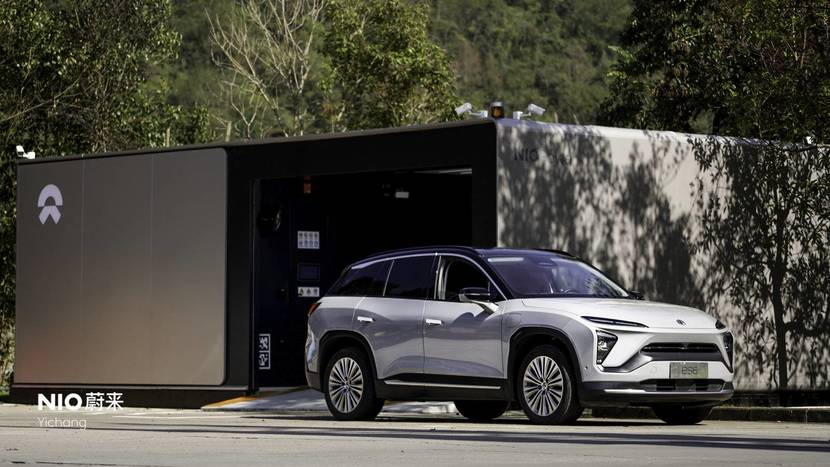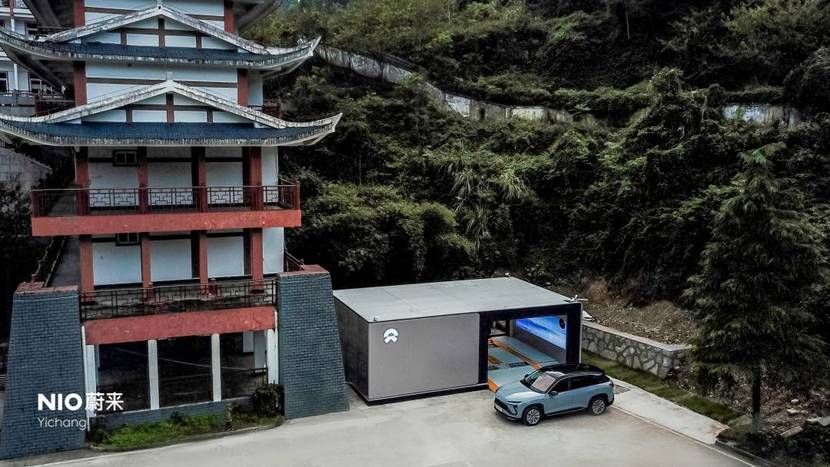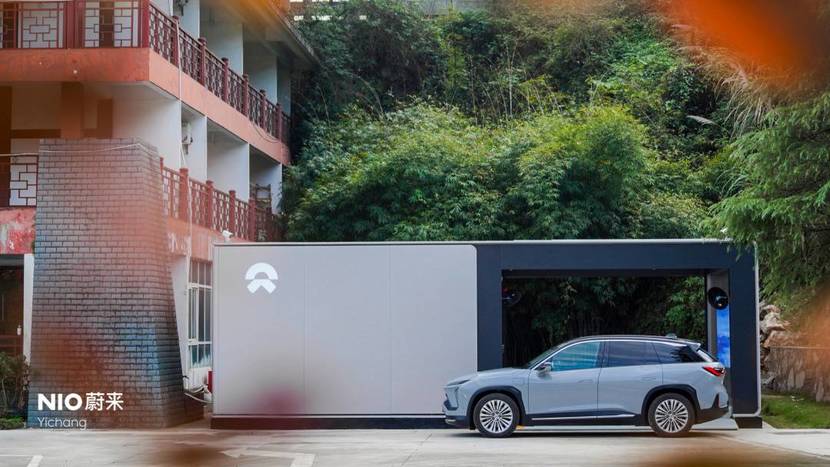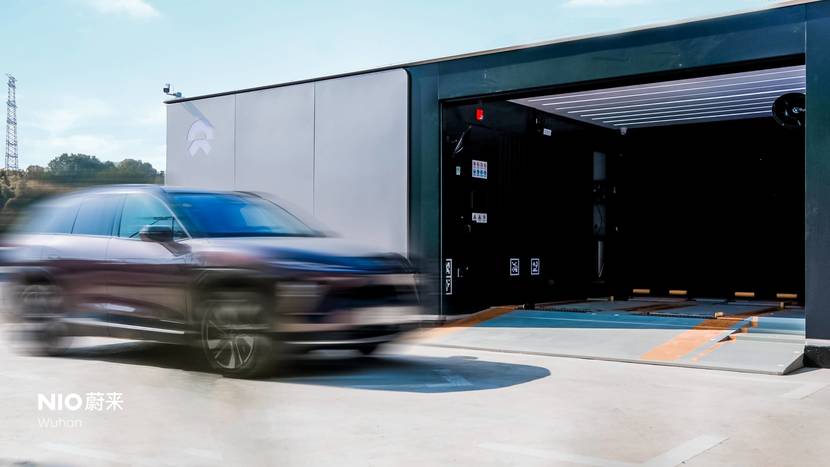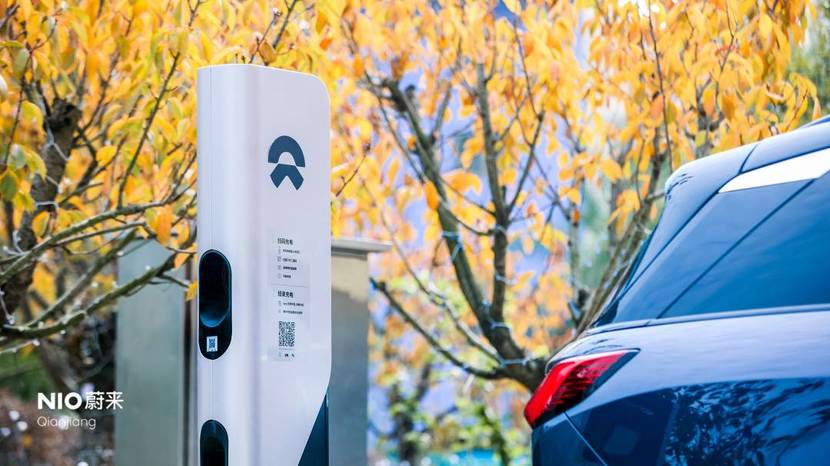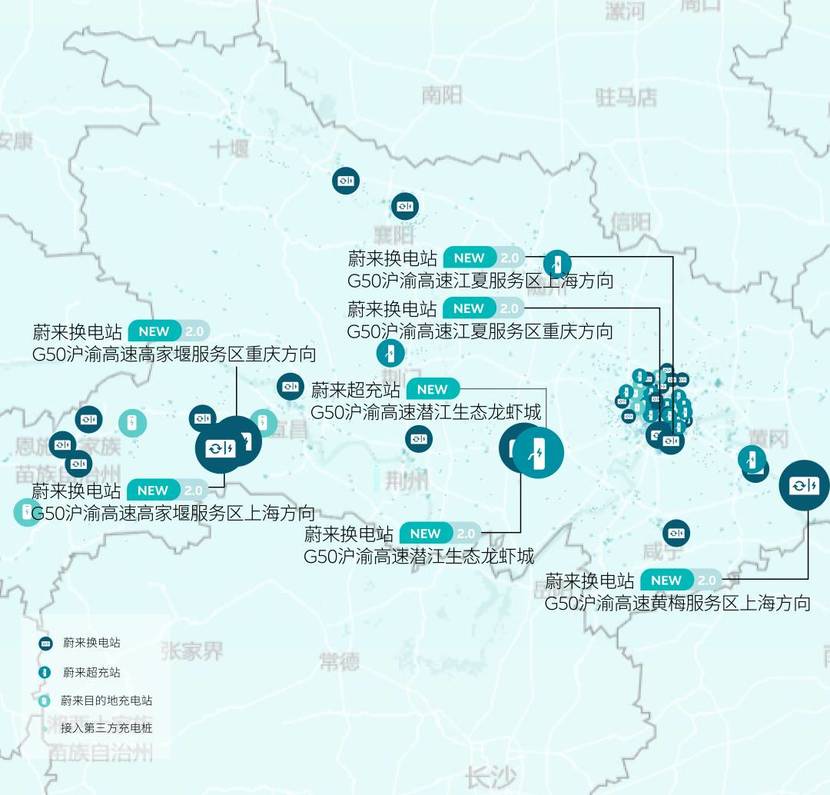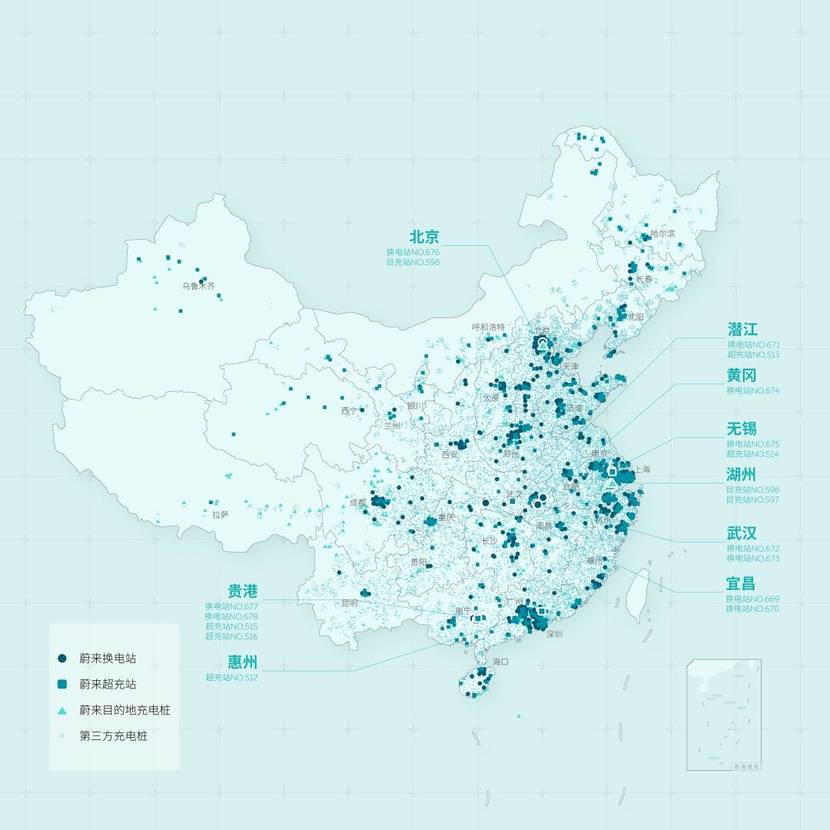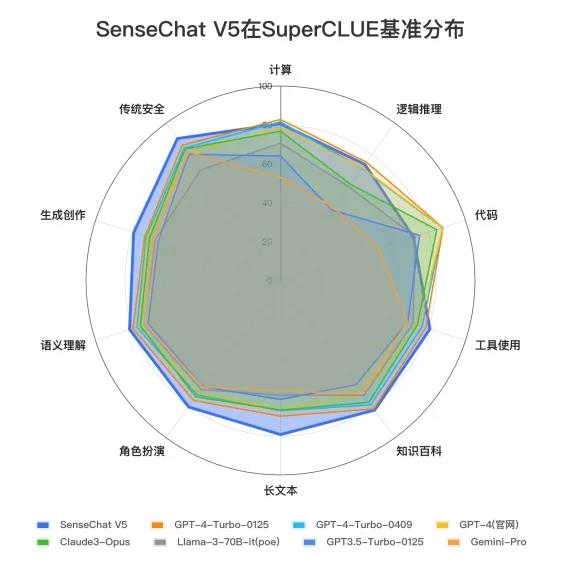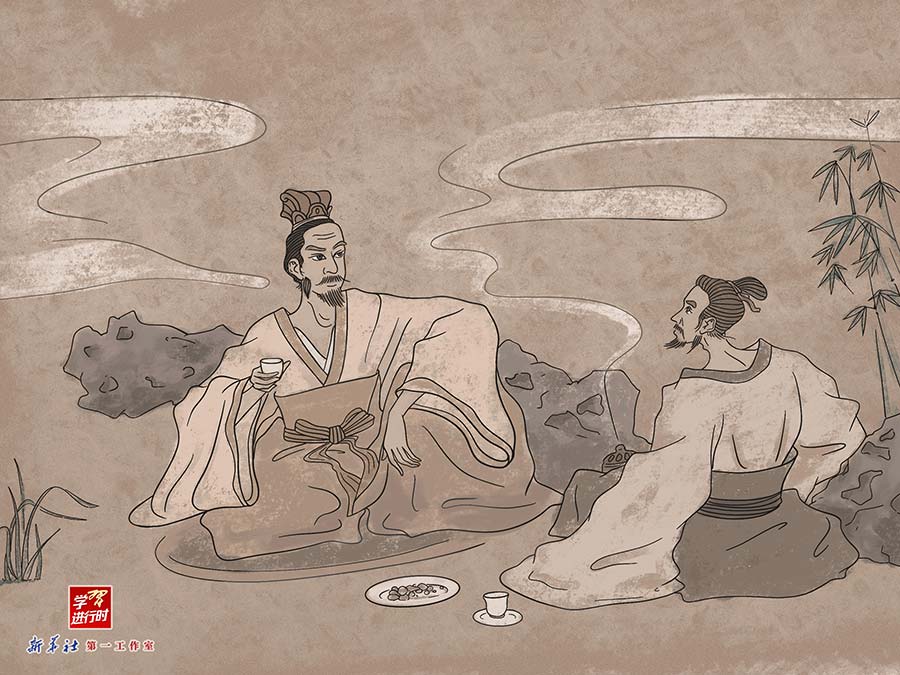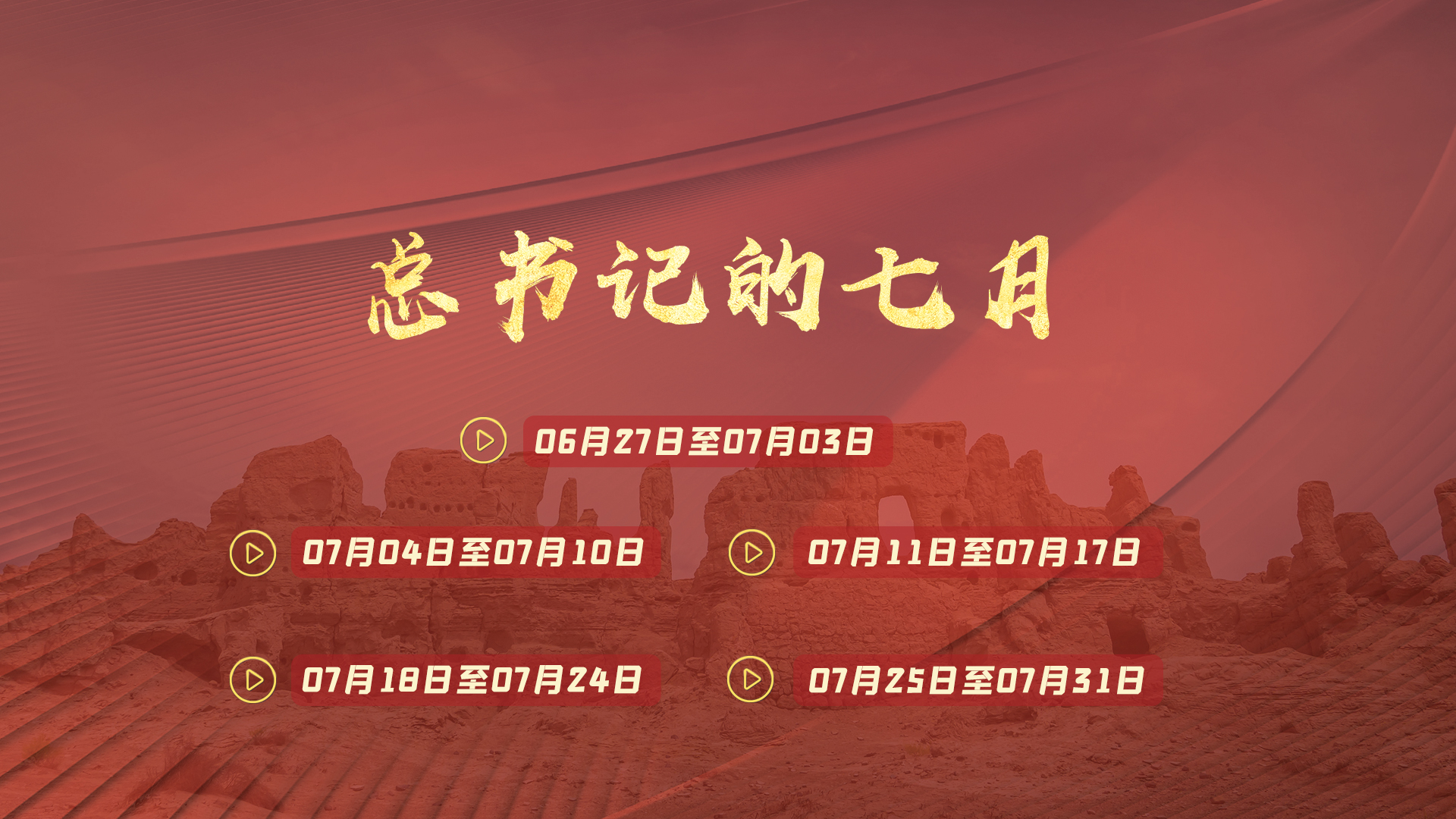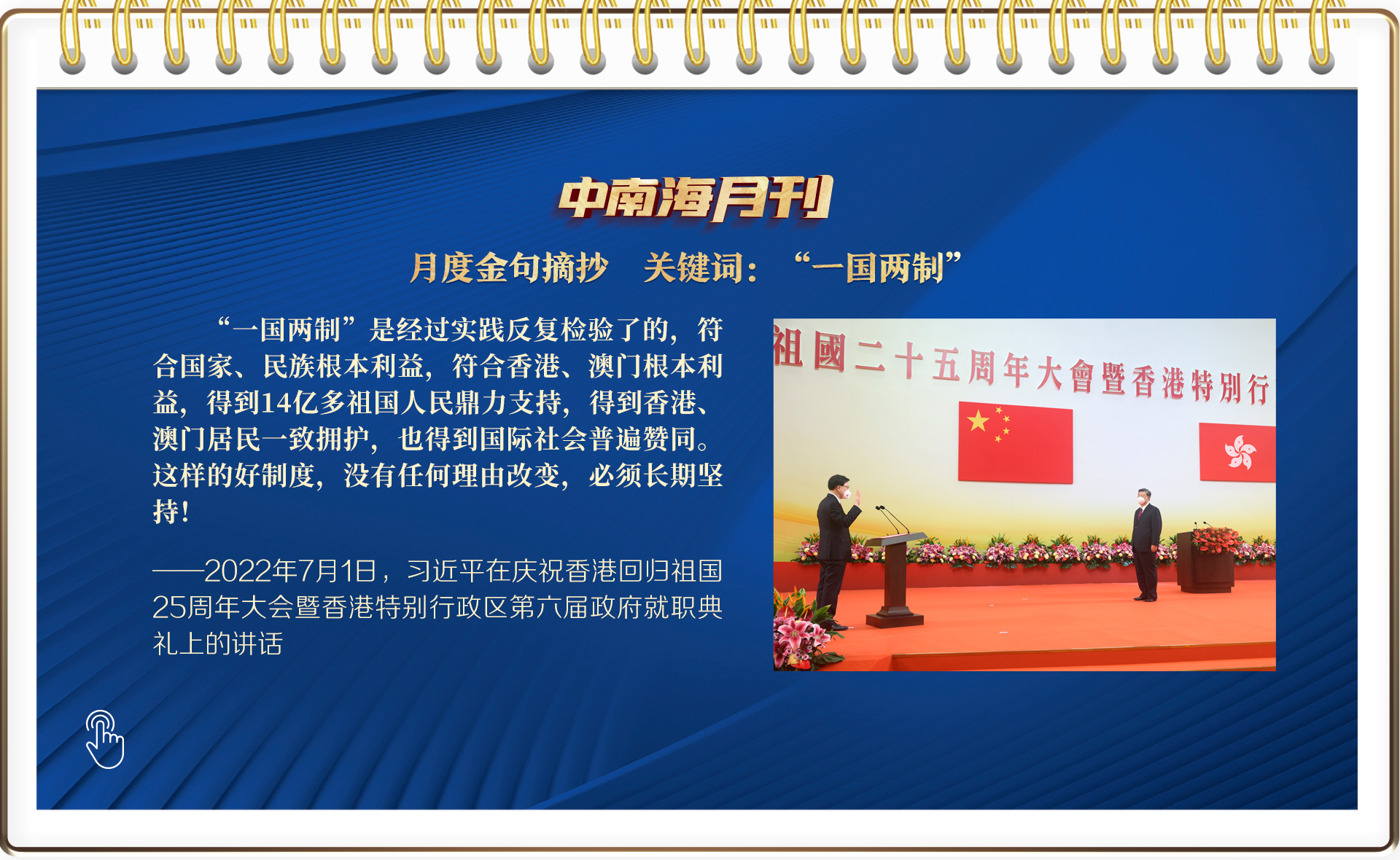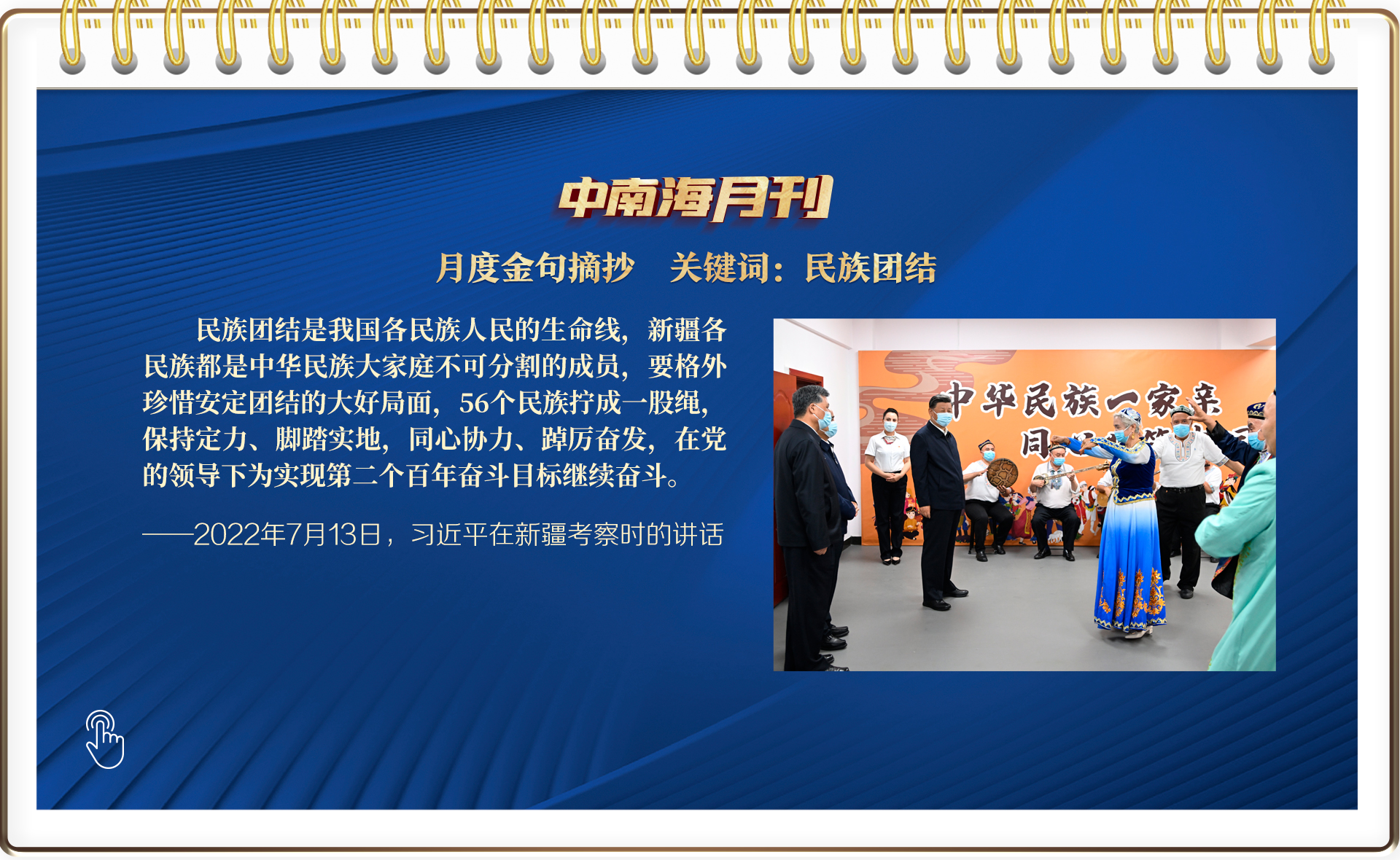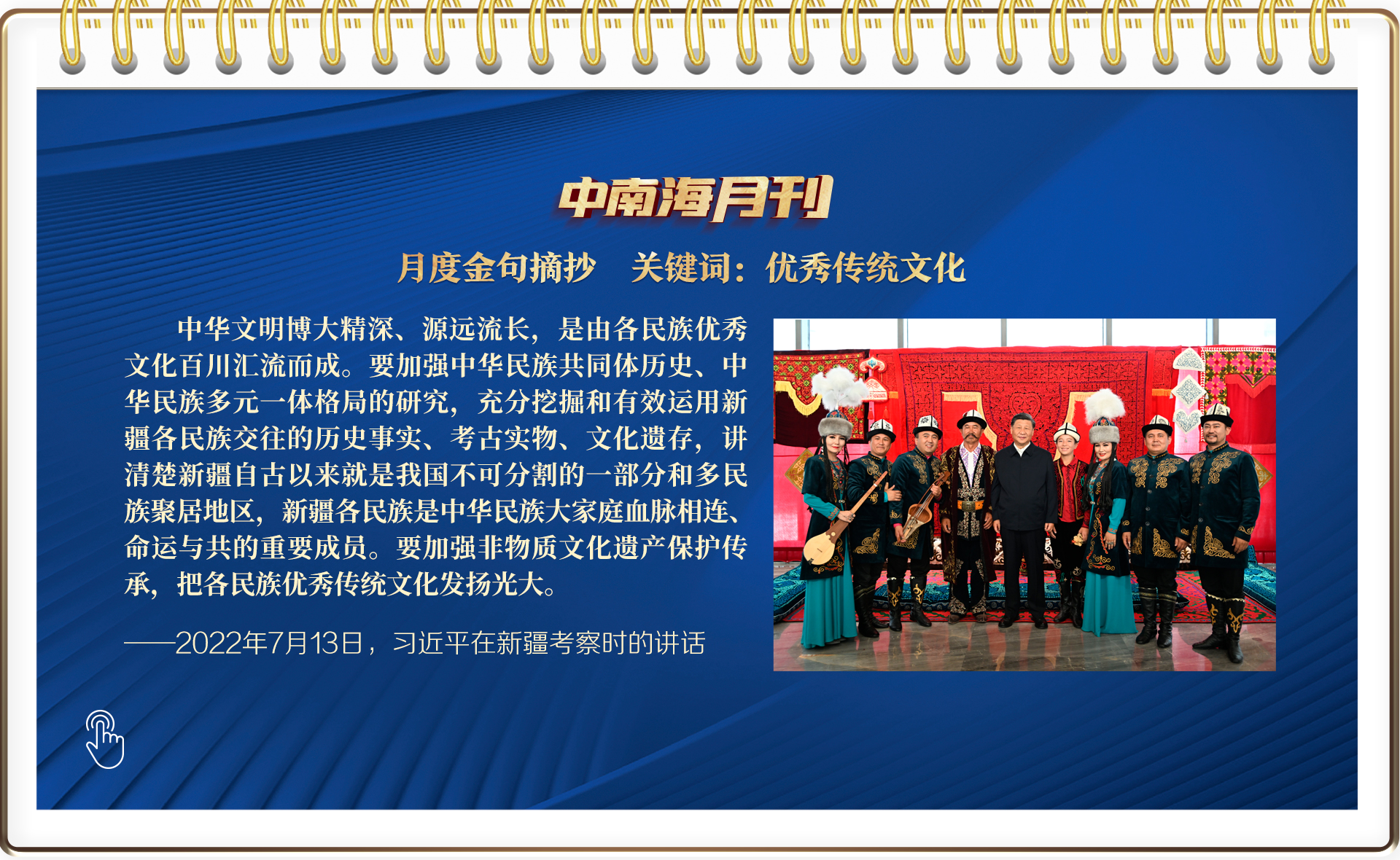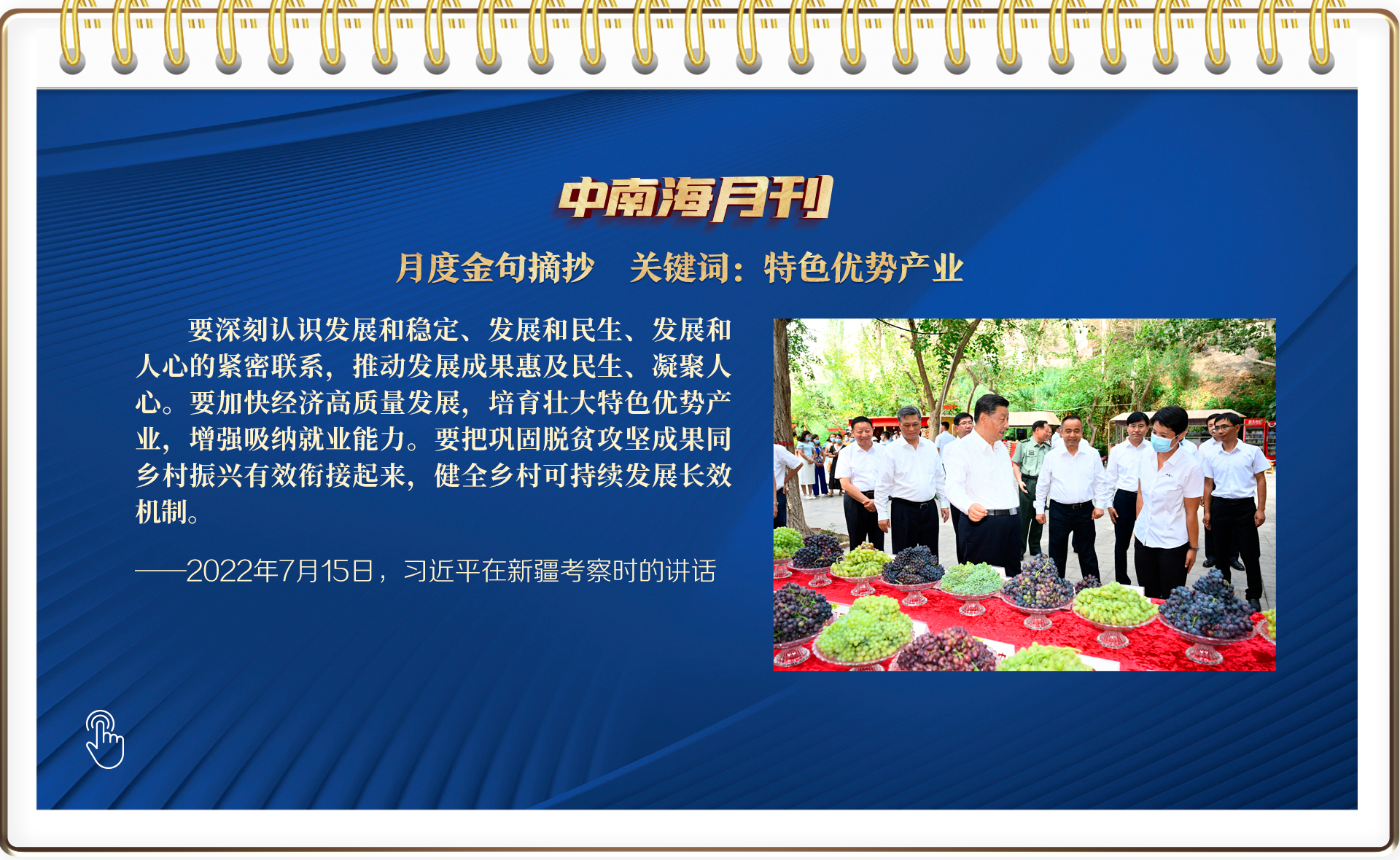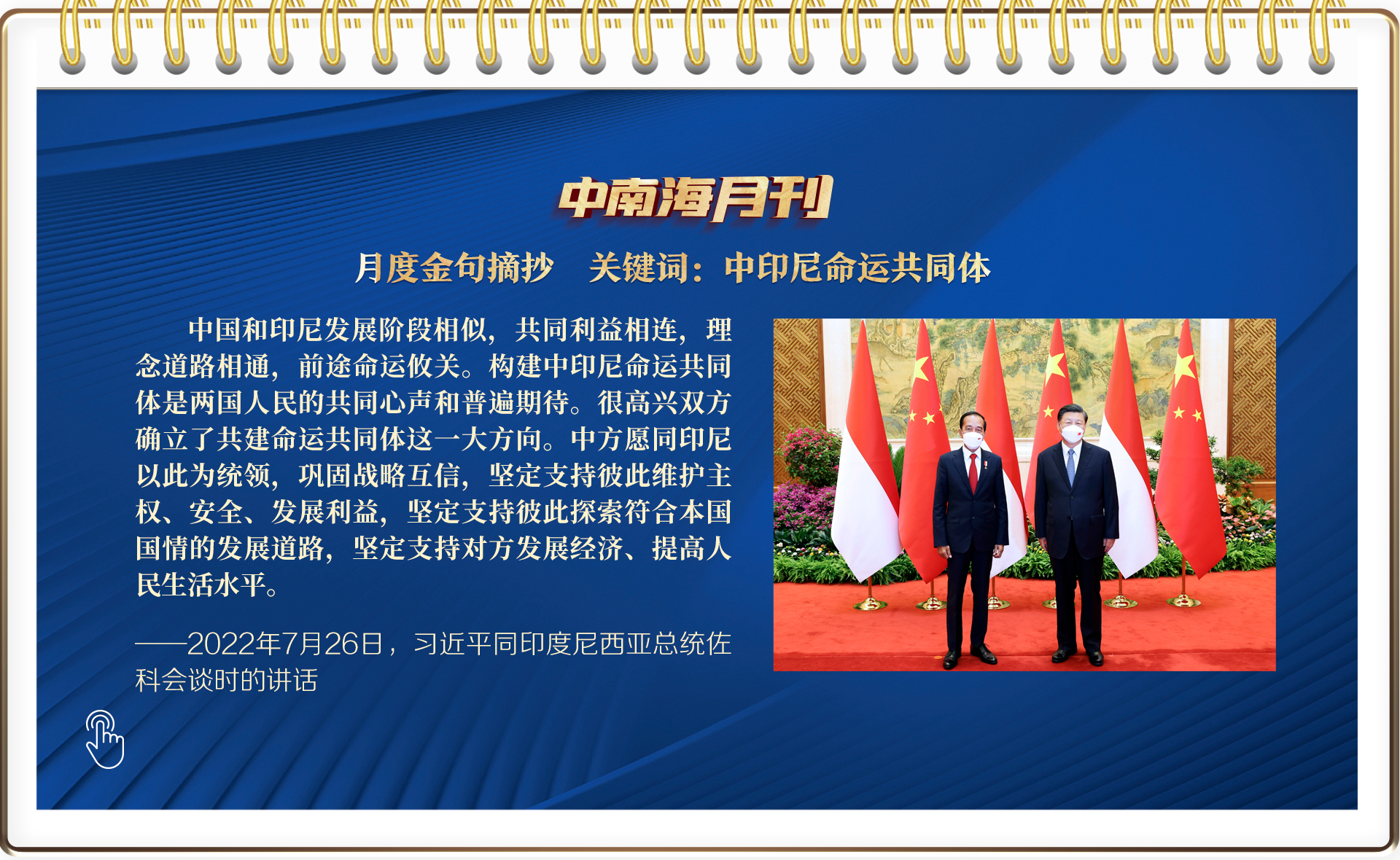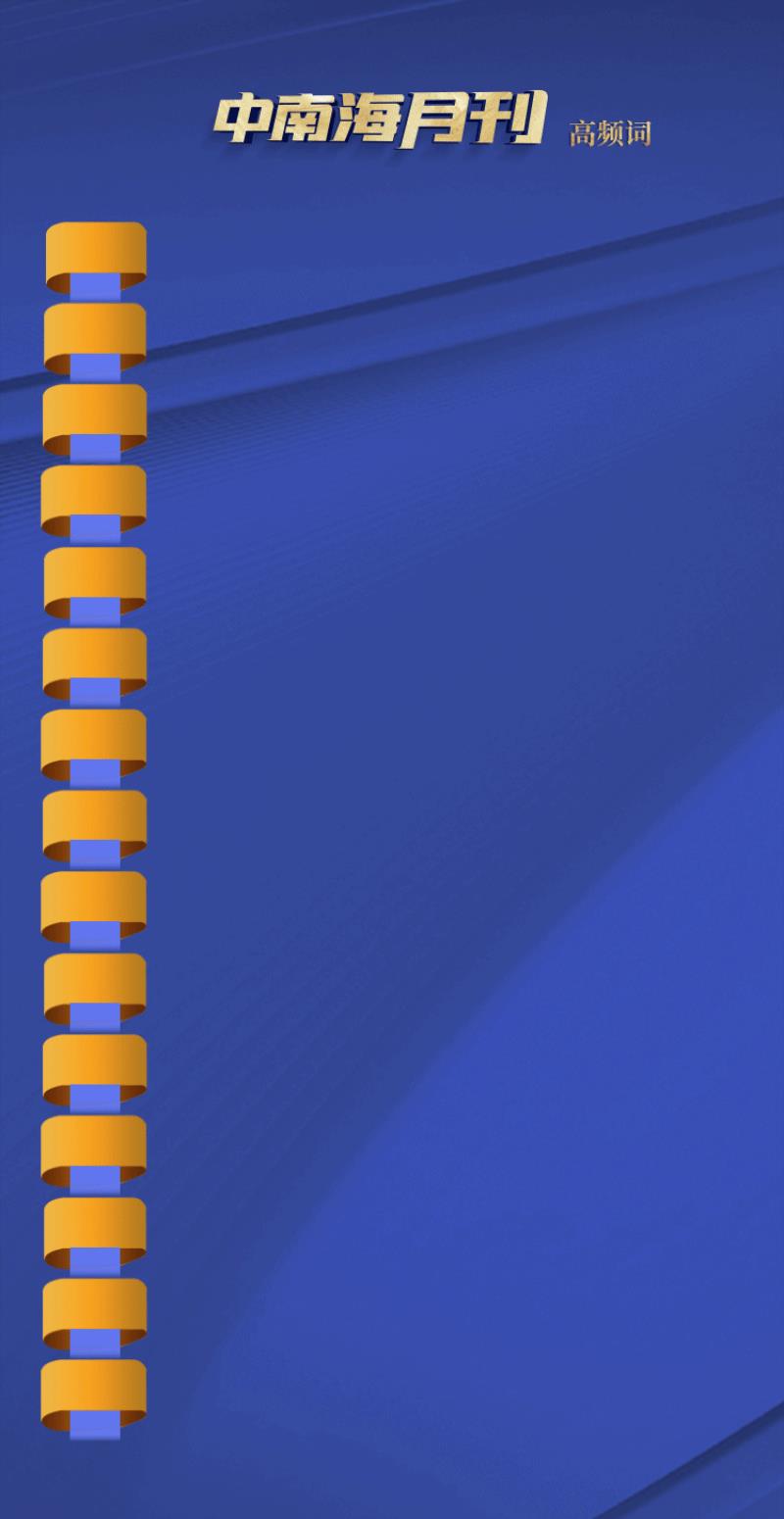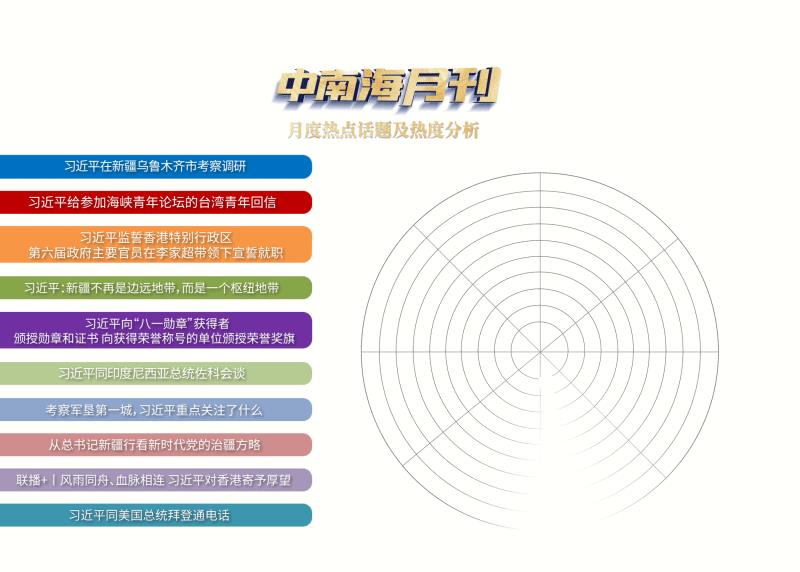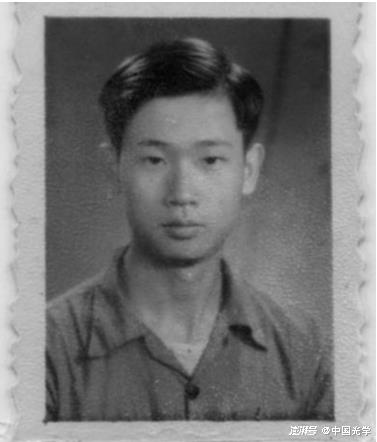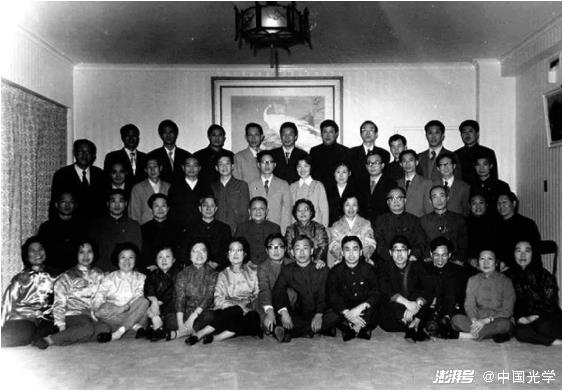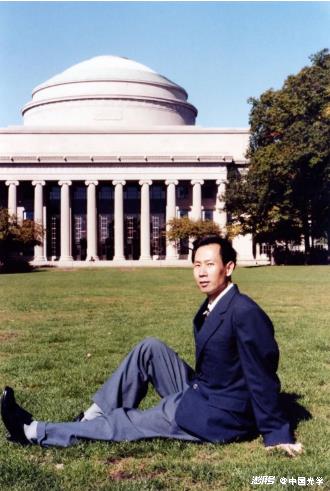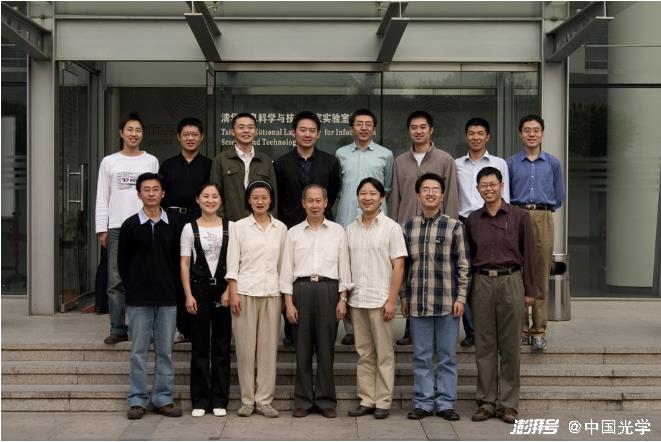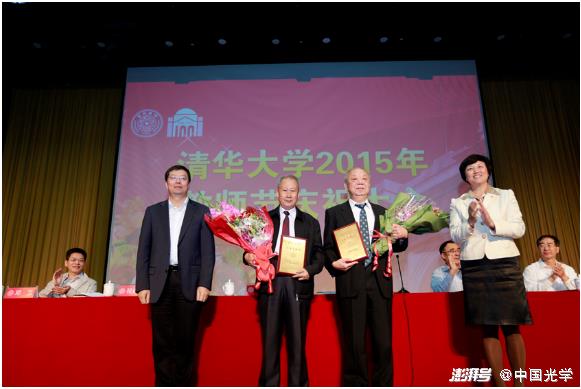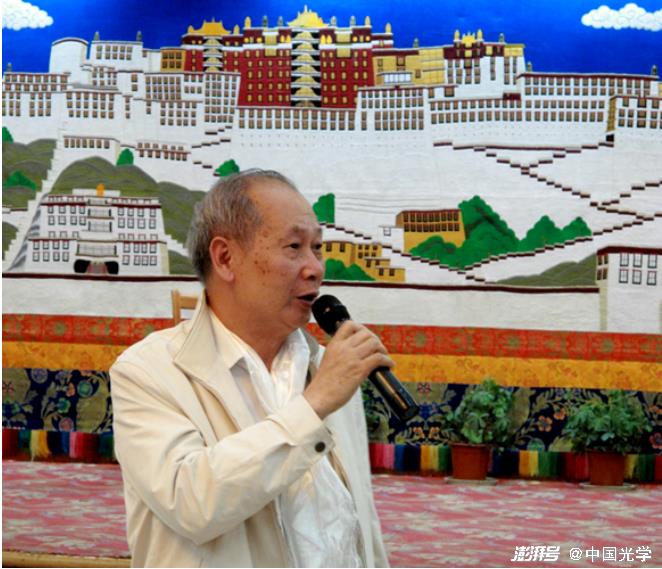Report of the Law Committee of the National People’s Congress on the results of deliberation on the proposal submitted by the deputies of the presidium of the third session of the 12th National People
The NPC Standing Committee:
????The presidium of the Third Session of the 12th National People’s Congress submitted 147 bills to the Legal Committee for deliberation, involving 45 legislative items and 1 legislative work. Among them, 111 laws were proposed to be amended, involving 24 legislative projects; 33 laws were proposed, involving 19 legislative projects; Two decisions on legal issues were proposed, involving two legislative projects; One suggestion on strengthening legislative interpretation.
????The Law Committee and the Legal Affairs Committee attach great importance to the handling of bills in accordance with the requirements of giving full play to the main role of NPC deputies in legislative work. First, strengthen the combination of bill handling and legislative work, and integrate bill handling into all aspects of legislative work. Second, when adjusting the legislative plan and compiling the annual legislative plan, carefully study the legislative items proposed by the representative motion, and include seven separate tax laws, such as the compilation of the civil code and the environmental protection tax law, in the adjusted legislative plan. Third, broaden the channels for deputies to participate in legislative work, and invite relevant representatives, especially those who put forward proposals, to participate in the pre-adoption evaluation meeting of the draft amendment to the Criminal Law (IX) and the draft amendment to the Advertising Law; During the formulation of the national security law, the revision of the food safety law, the air pollution prevention law and the law on promoting the transformation of scientific and technological achievements, relevant representatives were invited to participate in legislative research, demonstration and other activities, and their opinions and suggestions were carefully absorbed. Fourth, strengthen contact with the representatives who put forward the bill, conduct in-depth and meticulous communication, introduce the progress of relevant legislative work and the adoption of the opinions put forward, and fully explain and explain the opinions that have not been adopted.
????The Law Committee held a meeting on November 27th to consider 147 bills one by one. The review results are reported as follows:
????1. Ten legislative items involved in 73 bills have been deliberated and passed by the National People’s Congress Standing Committee (NPCSC).
????1. Eight proposals on amending the local organization law.
????2. Three bills on amending the electoral law.
????3. Three bills on amending the Representative Law.
????On August 29th, 2015, the 16th meeting of the 12th the National People’s Congress Standing Committee (NPCSC) adopted a decision on amending the local organization law, election law and representative law. Most of the suggestions put forward in the motion on amending the local organization law, such as clarifying the responsibilities of the presidium of the township people’s congress during the intersessional period, increasing the number of members of the county-level people’s congress standing Committee, increasing the provision that the county-level people’s congress can set up special committees such as the legal Committee and the financial and economic Committee as needed, and increasing the provision that the standing committees of cities and municipal districts without districts can set up people’s congress working institutions in the streets; Some suggestions put forward in the motion on amending the electoral law, such as improving the mechanism for examining the qualifications of deputies, publishing the list of elected representatives by the election committee or the presidium of the people’s congress, and accepting the supervision of the masses; Some suggestions put forward in the proposal to amend the law on deputies, such as strengthening the protection and supervision of deputies’ performance of their duties, have been stipulated in the amendment decision. Other proposals put forward in the motion, some of which are required in relevant documents forwarded by the CPC Central Committee, some of which can be clarified by local laws and regulations, and some of which need to be solved by strengthening and improving relevant work.
????4. Two bills on amending the National Security Law.
????The new national security law was adopted by the 15th session of the 12th the National People’s Congress Standing Committee (NPCSC) on July 1st, 2015. The main proposals put forward in the motion, such as amending the original national security law according to the requirements of the overall national security concept, expanding the definition of national security, and incorporating the public security system into the national security law, have been made in the new national security law.
????5. Five proposals on amending the advertising law.
????The revised advertising law was adopted by the 14th session of the 12th the National People’s Congress Standing Committee (NPCSC) on April 24th, 2015. The main suggestions put forward in the motion, such as strengthening the punishment of false advertisements, further strictly restricting tobacco advertisements, strengthening the protection of minors in advertising activities, strengthening the regulation of online advertising behavior, strengthening the legal responsibility of advertising spokespersons, further increasing the punishment of illegal advertisements published by radio, television, newspapers and other news media, strengthening the supervision responsibility of advertising supervision and management organs, increasing the punishment of illegal advertisements, and increasing the principles and norms on public service advertisements, have been made in the revised advertising law.
????6. Five proposals on amending the Food Safety Law.
????The revised Food Safety Law was adopted by the 14th session of the 12th the National People’s Congress Standing Committee (NPCSC) on April 24th, 2015. The main suggestions put forward in the motion, such as strengthening the source control of the quality and safety of agricultural products, improving food safety standards, improving the requirements of food labeling and labeling, clarifying the supervision department of centralized disinfection units for tableware, improving the supervision of health food, strengthening the protection of children’s food safety, and giving play to the role of industry self-discipline in ensuring food safety, have been stipulated in the revised food safety law.
????7. Six proposals on amending the Law on the Prevention and Control of Air Pollution.
????The revised air pollution prevention law was adopted by the 16th session of the 12th the National People’s Congress Standing Committee (NPCSC) on August 29th, 2015. The main suggestions put forward in the motion, such as increasing the prohibition of pollutant discharge from ships, implementing measures such as shore-based power supply for motor boats and using low-sulfur oil, increasing the prohibition of burning fallen leaves, weeds and straws, and improving the system of atmospheric environmental information disclosure and public participation, have been made in the revised air pollution prevention and control law.
????8. Six proposals on amending the Law on Promoting the Transformation of Scientific and Technological Achievements
????On August 29th, 2015, the 16th meeting of the 12th the National People’s Congress Standing Committee (NPCSC) adopted a decision on amending the Law on Promoting the Transformation of Scientific and Technological Achievements. The main suggestions put forward in the motion, such as adding the definitions of "scientific and technological achievements" and "post-scientific and technological achievements" and further improving the standards of rewards and remuneration for scientific and technological personnel, have been stipulated in the revised Law on Promoting the Transformation of Scientific and Technological Achievements; The specific preferential tax measures for the transformation of scientific and technological achievements and the part-time remuneration of scientific and technological personnel serving as leading cadres have all been stipulated in principle.
????9. 34 bills on amending the Criminal Law.
????Amendment IX to the Criminal Law was adopted at the 16th session of the 12th the National People’s Congress Standing Committee (NPCSC) on August 29th, 2015. The main suggestions put forward in the motion, such as increasing the punishment for the crime of buying abducted women and children, and canceling the provision of not investigating criminal responsibility; Abolish the crime of whoring with young girls; Revise the conviction and sentencing standards of corruption and bribery crimes and add life imprisonment; Increase the crime of assaulting police; Perfecting the provisions for punishing terrorist activities has been made in the ninth amendment to the Criminal Law. Other suggestions put forward in the motion, such as the imprisonment of "drug driving" and the addition of the crime of infringing on the right of new plant varieties, will continue to be carefully studied by the Law Committee and the Legal Affairs Committee in the future legislative work.
????10. A proposal on establishing a public interest litigation system by procuratorial organs.
????On July 1, 2015, the 15th meeting of the 12th the National People’s Congress Standing Committee (NPCSC) adopted a decision on authorizing the Supreme People’s Procuratorate to carry out pilot work of public interest litigation in some areas. The Law Committee and the Legal Affairs Committee will study the revision of relevant laws according to the pilot work and suggestions from relevant parties.
????2. Four legislative items involved in eight motions have been submitted to the National People’s Congress Standing Committee (NPCSC) for deliberation.
????11. A bill on the formulation of the Law on National Medal and National Honorary Title.
????The draft Law on National Medal and National Honorary Title has been considered for the first time at the 16th meeting of the 12th the National People’s Congress Standing Committee (NPCSC), and has been submitted to the Standing Committee for the second consideration at this meeting. The main suggestions put forward in the motion have been carefully studied and absorbed during the drafting and deliberation of the draft law.
????12. Five proposals on formulating cyber security laws.
????The draft cyber security law has been considered for the first time by the 15th meeting of the 12th the National People’s Congress Standing Committee (NPCSC). During the drafting of the draft, the suggestions put forward in the motion were carefully studied and absorbed, and the Law Committee and the Legal Affairs Committee will further study with relevant parties in the deliberation and revision of the draft cyber security law.
????13. One proposal on formulating an asset appraisal law.
????The draft asset appraisal law has been reviewed by the 25th meeting of the 11th the National People’s Congress Standing Committee (NPCSC), the 4th meeting of the 12th the National People’s Congress Standing Committee (NPCSC) and the 16th meeting respectively. In the three deliberation drafts, the suggestions put forward in the proposal were carefully studied and absorbed, and the Law Committee and the Legal Affairs Committee will further study in the deliberation and revision of the draft asset appraisal law together with relevant parties.
????14. One proposal on formulating the management law of overseas NGOs.
????The draft law on the management of overseas NGOs has been reviewed twice by the 12th and 14th meetings of the 12th the National People’s Congress Standing Committee (NPCSC). In the second deliberation draft, the suggestions put forward in the motion were carefully studied and absorbed, and the Law Committee and the Legal Affairs Committee will further study with relevant parties in the deliberation and revision of the draft law on the management of overseas NGOs.
????Three legislative items involved in three or five motions have been included in the legislative work plan of the National People’s Congress Standing Committee (NPCSC) in 2016.
????15. One proposal on formulating the general principles of civil law.
????The Law Committee and the Legal Affairs Committee will carefully study the suggestions put forward in the bill in the compilation of the Civil Code. The formulation of general principles of civil law has been included in the legislative work plan of the National People’s Congress Standing Committee (NPCSC) in 2016.
????16. Three bills on amending the Administrative Reconsideration Law.
????At present, the Legislative Affairs Office of the State Council is studying and drafting the revised draft of the Administrative Reconsideration Law. The Law Committee and the Legal Affairs Committee will seriously study the proposals put forward in the motion together with the the State Council Legislative Affairs Office and other departments. The revision of the Administrative Reconsideration Law has been included in the legislative work plan of the National People’s Congress Standing Committee (NPCSC) in 2016.
????17. 1 proposal on accelerating the implementation of the statutory principle of taxation.
????According to the requirement of "implementing the statutory principle of taxation" decided by the Third Plenary Session of the 18th CPC Central Committee, the Implementation Opinions on Implementing the statutory principle of taxation, which was approved by the CPC Central Committee, clearly stated that if new taxes are levied, the corresponding tax laws should be formulated through the National People’s Congress and its Standing Committee; Specific arrangements have been made for the time when the current 15 tax regulations will be revised into laws or abolished, and efforts will be made to complete them all by 2020; After all tax regulations are raised to laws or abolished, they shall be submitted to the National People’s Congress for annulment of relevant authorization decisions. At present, environmental protection tax law, value-added tax law, resource tax law, real estate tax law, tariff law, tonnage tax law, farmland occupation tax law and tax collection and management law (revised) have been included in the adjusted 12th the National People’s Congress Standing Committee (NPCSC) Legislative Plan. The Law Committee and the Legal Affairs Committee will actively do a good job in relevant tax legislation in accordance with the relevant provisions of the Legislative Law. The formulation of environmental protection tax law, real estate tax law, ship tonnage tax law, tobacco tax law and revision of tax collection and management law have been included in the legislative work plan of the National People’s Congress Standing Committee (NPCSC) in 2016.
????Four, seven legislative items involved in 20 bills have been included in the 12 th the National People’s Congress Standing Committee (NPCSC) Legislative Plan and are being drafted or studied for revision.
????18. Two proposals on starting the compilation of the Civil Code.
????19. Six bills on amending the General Principles of Civil Law, Property Law and Guarantee Law.
????20. One proposal on unifying the compensation standard for road traffic accident death.
????21. Three bills on amending the Marriage Law.
????22. Two proposals on amending the law of succession.
????The compilation of the Civil Code has been included in the adjusted 12th the National People’s Congress Standing Committee (NPCSC) Legislative Plan, and the Legislative Affairs Commission is stepping up its research and drafting work. Regarding the suggestions made in the bill, the Law Committee and the Legal Affairs Committee will carefully study and make overall consideration in the compilation of the Civil Code.
????23. Five proposals on enacting anti-corruption laws.
????With regard to anti-corruption legislation, the revision of the Administrative Supervision Law and the enactment of the International Criminal Judicial Assistance Law have been included in the 12th the National People’s Congress Standing Committee (NPCSC) Legislative Plan. The Law Committee and the Legal Affairs Committee will carefully study the suggestions put forward in the motion in the future legislative work.
????24. One proposal on the formulation of a criminal victim compensation law.
????The formulation of the law on assistance to criminal victims has been included in the 12th legislative plan of the National People’s Congress Standing Committee (NPCSC), and the Legal Affairs Committee is stepping up research and drafting. The Law Committee and the Legal Affairs Committee will seriously study the proposals put forward in the motion together with relevant parties.
????Five, 40 bills involving 21 legislative items, some can be included in the annual legislative work plan when conditions are ripe, and some can be included in the drafting or revision of relevant laws for overall consideration.
????25. Three bills on amending the supervision law.
????26. One proposal on amending the State Compensation Law.
????27. A bill on the formulation of a constitutional interpretation procedure law.
????28. One proposal on amending the Organic Law of the National People’s Congress, the rules of procedure of the National People’s Congress and the local organization law.
????29. One proposal on enacting a hearing law.
????30. One proposal on designating September 18th as "National Shame Warning Day"
????31. Three bills on the formulation of personal information protection law.
????32. One proposal on amending the emergency response law.
????33. One proposal on enacting a petition law.
????34. One proposal on enacting the law on the disclosure of government information.
????35. Three bills on amending the Administrative Punishment Law.
????36. A bill on the formulation of a law on publicity and education of the rule of law.
????37. One proposal on enacting a law on weapons and equipment procurement.
????38. One bill on the enactment of a law on non-war military operations.
????39. Two bills on the formulation of the law on the protection of military rights and interests.
????40. Six bills on amending the Civil Procedure Law.
????41. Five bills on amending the Criminal Procedure Law.
????42. Three bills on the enactment of enforcement law.
????43. Two proposals on amending the Arbitration Law.
????44. A proposal on building a public interest litigation system for the loss of state-owned assets.
????45. A proposal on establishing an oath system for witnesses and experts.
????In addition, there is a motion on strengthening the legislative interpretation of the National People’s Congress Standing Committee (NPCSC). The decision on amending the legislative law, which was deliberated and adopted at the Third Session of the 12th National People’s Congress, has made corresponding provisions on the relevant suggestions put forward in the motion, and the Law Committee and the Legal Affairs Committee will continue to strengthen relevant legislative work in the future.
????Please review the above report.
????Annex: Deliberating opinions of the Law Committee of the National People’s Congress on the proposal submitted by the deputies of the presidium of the third session of the 12th National People’s Congress.
????Law Committee of the National People’s Congress
????November 27th, 2015
????Attachment:
????The deliberation opinions of the Law Committee of the National People’s Congress on the proposal submitted by the presidium of the third session of the 12th National People’s Congress.
????The presidium of the Third Session of the 12th National People’s Congress submitted 147 bills to the Legal Committee for deliberation, involving 45 legislative items and 1 legislative work. Among them, 111 laws were proposed to be amended, involving 24 legislative projects; 33 laws were proposed, involving 19 legislative projects; Two decisions on legal issues were proposed, involving two legislative projects; One suggestion on strengthening legislative interpretation.
????1. Ten legislative items involved in 73 bills have been deliberated and passed by the National People’s Congress Standing Committee (NPCSC).
????1. Eight proposals on amending the local organization law.
????No.11 proposed by Anhui delegation, No.21 proposed by Yao Hai, No.40 proposed by Yuan Jinghua and other representatives, No.58 proposed by Yang Guixin and other representatives, No.204 proposed by Zhang Tianren and other representatives, No.337 proposed by Xie Xianshu and other representatives, No.365 proposed by Song Wei and No.385 proposed by Huang Yun and other representatives, and it is suggested to improve the organizational construction of township people’s congresses and take the presidium of township people’s congresses as township people’s congresses. Improve the establishment of neighborhood people’s congress working institutions and development zone people’s congress working institutions; Increase the number of members of the Standing Committee of local people’s congresses; Improve the establishment of special committees and standing committees of local people’s congresses; Improve the local people’s congress election system; Give local people’s courts and people’s procuratorates the right to propose bills. On August 29th, 2015, the 16th meeting of the 12th the National People’s Congress Standing Committee (NPCSC) adopted a decision on amending the local organization law, election law and representative law. Most of the suggestions put forward in the motion have been stipulated in the revision decision.
????2. Three bills on amending the electoral law.
????No.22 proposed by Yao Hai, No.41 proposed by Yuan Jinghua and No.520 proposed by Mai Shirui, suggesting that the qualifications of candidates for deputies should be restricted; Solve the problem of separation of household registration and residence, and increase the provisions for floating population to participate in elections in their current residence; Further refine the procedures for voters to jointly recommend representatives; Improve the counting system and establish a public counting system on the spot; Improve the procedures for the recall of deputies to the National People’s Congress. On August 29th, 2015, the 16th meeting of the 12th the National People’s Congress Standing Committee (NPCSC) adopted a decision on amending the local organization law, election law and representative law. Some suggestions put forward in the motion, such as improving the mechanism for examining the qualifications of deputies, publishing the list of elected representatives by the Election Committee or the Presidium of the People’s Congress, and accepting the supervision of the people, have been made in the revision decision. Other suggestions put forward in the motion, such as floating population running for election, improving the vote counting system, and improving the procedures for the recall of deputies to the National People’s Congress, have been put forward in relevant documents forwarded by the CPC Central Committee, and some problems can be clarified by local laws and regulations. The Law Committee and the Legal Affairs Committee will continue to study these suggestions in their future work practice.
????3. Three bills on amending the Representative Law.
????No.38 proposed by representatives such as Yuan Jinghua, No.67 proposed by representatives such as Lin Yinmao and No.68 proposed by representatives such as Sheng Yafei, suggesting that the organs and specific contents of the guarantee for the performance of duties should be clarified; Clearly distinguish the different reasons for the recall and resignation of deputies; We will improve the system of special personal protection for deputies, and clarify the content, procedure and time limit of the review of the measures to restrict personal freedom. On August 29th, 2015, the 16th meeting of the 12th the National People’s Congress Standing Committee (NPCSC) adopted a decision on amending the local organization law, election law and representative law. The proposals put forward in the motion to strengthen the protection and supervision of deputies’ performance of their duties have been stipulated in the revised decision. Other proposals put forward in the motion, some of which are required in the documents forwarded by the CPC Central Committee, and some of which need to be solved by strengthening and improving relevant work. The Law Committee and the Legal Affairs Committee will continue to study these suggestions in their future work practice.
????4. Two bills on amending the National Security Law.
????No.304 proposed by representatives such as Jia Chunmei and No.516 proposed by representatives such as Yang Yada suggested that the original national security law should be revised, the definition of national security should be expanded, and the public security system should be incorporated into the national security law. The new national security law was adopted by the 15th session of the 12th the National People’s Congress Standing Committee (NPCSC) on July 1st, 2015. The main proposals put forward in the motion, such as amending the national security law according to the requirements of the overall national security concept and expanding the definition scope of national security, have been made in the new national security law.
????5. Five proposals on amending the advertising law.
????No.74 proposed by representatives such as Zhang Weihua, No.261 proposed by representatives such as Jiang Jian, No.303 proposed by representatives such as Jia Chunmei, No.332 proposed by representatives such as Wei Feiyan, and No.490 proposed by representatives such as Zhang Zequn suggested strengthening the punishment for false advertisements; Further strictly restrict tobacco advertising or completely ban tobacco advertising; Strengthen the protection of minors; Increase the regulation of Internet advertising; Strengthen the responsibility of advertising spokespersons; Further increase the penalties for illegal advertising by news media such as radio, television and newspapers; Strengthen the supervision responsibility of advertising supervision and management organs; Increase penalties for advertising violations; Increase the norms of public service advertisements, etc. The revised advertising law was adopted by the 14th session of the 12th the National People’s Congress Standing Committee (NPCSC) on April 24th, 2015. The main suggestions put forward in the motion, such as strengthening the punishment of false advertisements, further strictly restricting tobacco advertisements, strengthening the protection of minors in advertising activities, strengthening the regulation of online advertising behavior, strengthening the legal responsibility of advertising spokespersons, further increasing the punishment of illegal advertisements published by radio, television, newspapers and other news media, strengthening the supervision responsibility of advertising supervision and management organs, increasing the punishment of illegal advertisements, and increasing the principles and norms on public service advertisements, have been made in the revised advertising law.
????6. Five proposals on amending the Food Safety Law.
????No.263 proposed by Jiang Jian and other representatives, No.294 proposed by Zhao Lianguan and other representatives, No.373 proposed by Jie Zheng and other representatives, No.483 proposed by Gao Guangsheng and No.508 proposed by Zheng Xiaohe and other representatives suggested that the food safety law should be positioned as the basic law in this field, and the regulatory power should be clarified, the regulatory responsibilities should be defined and the regulatory system should be rationalized. Strengthen the source control of agricultural product quality and safety; Improve food safety standards; Improve the requirements of food labeling and labeling; Clarify the supervision department of centralized disinfection unit of tableware; Strengthen the supervision of health food; Strengthen the protection of children’s food safety; Play the role of industry self-discipline in ensuring food safety. The revised Food Safety Law was adopted by the 14th session of the 12th the National People’s Congress Standing Committee (NPCSC) on April 24th, 2015. The main suggestions put forward in the motion, such as strengthening the source control of the quality and safety of agricultural products, improving food safety standards, improving the requirements of food labeling and labeling, clarifying the supervision department of centralized disinfection units for tableware, improving the supervision of health food, strengthening the protection of children’s food safety, and giving play to the role of industry self-discipline in ensuring food safety, have been stipulated in the revised food safety law.
????7. Six proposals on amending the Law on the Prevention and Control of Air Pollution.
????No.19 proposed by Zhang Quan and other representatives, No.91 proposed by Li Yanqun and other representatives, No.165 proposed by Sun Jing and other representatives, No.177 proposed by Lv Zhongmei and other representatives, No.258 proposed by Jiang Jian and No.266 proposed by Xing Kezhi and other representatives, suggesting to increase the regulations on the discharge of pollutants from ships; Increase the provisions on the right to know about the environment; Increase the obligation of key polluting enterprises to disclose real-time emission information to the society and accept social supervision; Improve the system of public participation, information disclosure and public interest litigation; On the basis of strict emission standards and oil standards, measures such as shore-based power supply and the use of low-sulfur oil in large ports and docks will be implemented; Increase the prohibition of burning fallen leaves, weeds and straws. The revised air pollution prevention law was adopted by the 16th session of the 12th the National People’s Congress Standing Committee (NPCSC) on August 29th, 2015. The main suggestions put forward in the motion, such as increasing the prohibition of pollutant discharge from ships, implementing measures such as shore-based power supply for motor boats and using low-sulfur oil, increasing the prohibition of burning fallen leaves, weeds and straws, and improving the system of atmospheric environmental information disclosure and public participation, have been made in the revised air pollution prevention and control law.
????8. Six proposals on amending the Law on Promoting the Transformation of Scientific and Technological Achievements
????No.15 proposed by Chen Rui Ai and other representatives, No.72 proposed by Zhang Weihua and other representatives, No.81 proposed by Yao Jianmin and other representatives, No.259 proposed by Jiang Jian and other representatives, No.426 proposed by Bai Hongzhan and No.431 proposed by Luo Ping, suggesting to add the definitions of "scientific and technological achievements" and "post scientific and technological achievements"; Further improve the standards of rewards and remuneration for scientific and technological personnel; To stipulate specific preferential tax measures for the transformation of scientific and technological achievements; Clarify the issue of part-time remuneration for scientific and technological personnel who are leading cadres. On August 29th, 2015, the 16th meeting of the 12th the National People’s Congress Standing Committee (NPCSC) adopted a decision on amending the Law on Promoting the Transformation of Scientific and Technological Achievements. The main suggestions put forward in the motion, such as adding the definitions of "scientific and technological achievements" and "post-scientific and technological achievements" and further improving the standards of rewards and remuneration for scientific and technological personnel, have been stipulated in the revised Law on Promoting the Transformation of Scientific and Technological Achievements; The specific preferential tax measures for the transformation of scientific and technological achievements and the part-time remuneration of scientific and technological personnel serving as leading cadres have all been stipulated in principle.
????9. 34 bills on amending the Criminal Law.
????No.20 proposed by Jia Wei’s equal representatives, No.77 proposed by Chen Weicai and others, No.80 proposed by Zhu Liyu and others, No.89 proposed by Wang Yunlong and others, No.93 proposed by Ningxia delegation, No.113 proposed by Yang Qin and others, No.153 proposed by Wu Xiangdong and others, No.192 proposed by Wu Donglan and others, No.218 proposed by Liu Yuankun and others. No.230, 253 and 351 proposed by Zheng Jianjiang and others, No.293 proposed by Zhang Shuqin and others, No.301, 302 and 305 proposed by Jia Chunmei and others, No.323 proposed by Hu Zijing and others, No.329, 334 and 335 proposed by Wei Feiyan and others, No.330 proposed by Feng Bihong and No.377 proposed by Qin Xiyan and others. No.394 proposed by Wang Mingwen and others, No.402 proposed by Mai Shirui and others, No.464 proposed by Li Denghai and others, No.469 proposed by Jiang Houlin and others, No.471 proposed by Liu Qin and others, No.479 proposed by Li Yalan and others, No.484 proposed by Li Guangyu and others, No.487 proposed by Yin Xiumei and No.489 proposed by Zhang Qiong and others. Raise the starting penalty for the crime of abducting and selling women and children, further increase the punishment, and amend the crime of abducting and selling women and children to the crime of abducting and selling people; Cancel the standard of conviction and sentencing amount in bribery and corruption crimes;Refine the amount standard of sentencing for corruption; Add life imprisonment to criminals who commit serious corruption and bribery; Adding fines to the crime of corruption and bribery, and expanding the object of bribery from property to include property and property interests; Add the crime of assaulting a police officer, and stipulate that assaulting a police officer shall be severely punished according to the crime of obstructing official duties; Cancel the crime of whoring with young girls; Add the crime of contempt of court to the criminal law. Amendment IX to the Criminal Law was adopted at the 16th session of the 12th the National People’s Congress Standing Committee (NPCSC) on August 29th, 2015. The main suggestions put forward in the motion, such as increasing the punishment for the crime of buying abducted women and children, and canceling the provision of not investigating criminal responsibility; Abolish the crime of whoring with young girls; Revise the conviction and sentencing standards of corruption and bribery crimes and add life imprisonment; Increase the crime of assaulting police; Perfecting the provisions for punishing terrorist activities has been made in the ninth amendment to the Criminal Law. Other suggestions put forward in the motion, such as the imprisonment of "drug driving" and the addition of the crime of infringing on the right of new plant varieties, will continue to be carefully studied by the Law Committee and the Legal Affairs Committee in the future legislative work.
????10. A proposal on establishing a public interest litigation system by procuratorial organs.
????Proposal No.79 put forward by Zheng Hong and other representatives suggested that the subject qualification of procuratorial organs in civil public interest litigation should be clarified through legislative interpretation, and the civil procedure law and administrative procedure law should be revised when the time is ripe, so as to clarify the subject status, scope of application and litigation procedures of procuratorial organs in civil and administrative public interest litigation. On July 1, 2015, the 15th meeting of the 12th the National People’s Congress Standing Committee (NPCSC) adopted a decision on authorizing the Supreme People’s Procuratorate to carry out pilot work of public interest litigation in some areas. The Law Committee and the Legal Affairs Committee will study the revision of relevant laws according to the pilot work and suggestions from relevant parties.
????2. Four legislative items involved in eight motions have been submitted to the National People’s Congress Standing Committee (NPCSC) for deliberation.
????11. A bill on the formulation of the Law on National Medal and National Honorary Title.
????The No.424 motion put forward by Bai Hongzhan and other representatives suggested that the construction of the national honor awarding system should be promoted based on China’s reality; The state formulates laws and regulations on the award of medals and honorary titles through legal channels and forms, and defines the setting, selection conditions, evaluation, award and revocation; Give full play to the positive role of the people in the process of awarding medals and honorary titles, and enhance the credibility of the national honor system. The draft Law on National Medal and National Honorary Title has been considered for the first time at the 16th meeting of the 12th the National People’s Congress Standing Committee (NPCSC), and has been submitted to the Standing Committee for the second consideration at this meeting. The main suggestions put forward in the motion have been carefully studied and absorbed during the drafting and deliberation of the draft law.
????12. Five proposals on formulating cyber security laws.
????No.43 proposed by Yuan Jinghua and other representatives, No.102 proposed by Shi Guilu and other representatives, No.114 proposed by Zhong Tianhua and other representatives, No.397 proposed by Wang Mingwen and No.409 proposed by Xu Xiao and other representatives, suggesting speeding up legislation and effectively ensuring network and information security; Straighten out the network management system and clarify the responsibilities of the supervision department; Strengthen the security of network operation and the security protection of key network infrastructure; Clarify the scope of network privacy protection, the legal responsibility of infringers and the remedies for infringement of network privacy; Implement network real-name registration system and strengthen the protection of information content and citizens’ personal information; Enhance the independent innovation ability of network information technology and strengthen the construction of network security protection ability; Intensify efforts to crack down on illegal and criminal activities such as using the Internet to endanger national security and public safety; Strengthen international cooperation and exchanges to jointly safeguard peace and security in cyberspace. The draft cyber security law has been considered for the first time by the 15th meeting of the 12th the National People’s Congress Standing Committee (NPCSC). In the process of drafting the draft, the suggestions put forward in the motion were carefully studied and absorbed, and the Law Committee and the Legal Affairs Committee will further study with relevant parties in the deliberation and revision of the draft cyber security law.
????13. One proposal on formulating an asset appraisal law.
????Proposal No.264 put forward by Jiang Jian and other representatives suggested that the problems such as the disunity of asset appraisal market, unclear responsibilities of appraisal institutions, low professional quality of appraisal practitioners and appraisal institutions, and insufficient self-discipline concept in the industry should be solved through legislation, and further promote decentralization, give full play to the role of industry associations, establish a review mechanism for appraisal reports, and standardize self-discipline management in the industry. The draft asset appraisal law has been reviewed by the 25th meeting of the 11th the National People’s Congress Standing Committee (NPCSC), the 4th meeting of the 12th the National People’s Congress Standing Committee (NPCSC) and the 16th meeting respectively. In the three deliberation drafts, the suggestions put forward in the proposal were carefully studied and absorbed, and the Law Committee and the Legal Affairs Committee will further study in the deliberation and revision of the draft asset appraisal law together with relevant parties.
????14. One proposal on formulating the management law of overseas NGOs.
????The 341st motion put forward by Liao Fei and other representatives suggested explicitly prohibiting foreign NGOs from engaging in activities endangering national security and interests in China; For overseas NGOs to recruit volunteers and organize projects in China, prior approval and examination permission shall be implemented; Relevant organizations and individuals in China who accept financial assistance, material donations, technical consultation and personnel services from overseas NGOs and carry out projects independently or jointly shall file with relevant departments; Establish a bank supervision account for the activities of overseas NGOs in China. The draft law on the management of overseas NGOs has been reviewed twice by the 12th and 14th meetings of the 12th the National People’s Congress Standing Committee (NPCSC). In the second deliberation draft, the suggestions put forward in the motion were carefully studied and absorbed, and the Law Committee and the Legal Affairs Committee will further study with relevant parties in the deliberation and revision of the draft law on the management of overseas NGOs.
????Three legislative items involved in three or five motions have been included in the legislative work plan of the National People’s Congress Standing Committee (NPCSC) in 2016.
????15. One proposal on formulating the general principles of civil law.
????The 70th motion put forward by Sun Xianzhong and other representatives put forward the basic institutional framework and legislative guiding ideology of the general principles of civil law. The Law Committee and the Legal Affairs Committee will carefully study the suggestions put forward in the bill in the compilation of the Civil Code. The formulation of general principles of civil law has been included in the legislative work plan of the National People’s Congress Standing Committee (NPCSC) in 2016.
????16. Three bills on amending the Administrative Reconsideration Law.
????No.17 proposed by representatives such as Chen Rui Ai, No.314 proposed by representatives such as Zhang Surong and No.336 proposed by representatives such as Xiang Huiling suggested that the reconsideration system should be reformed. If a party refuses to accept an administrative act, he will no longer choose to apply for reconsideration to the higher authorities or the government at the same level, but directly to the government at the same level; Governments at all levels set up special reconsideration institutions to handle administrative reconsideration cases; Expand the scope of accepting cases and clarify the matters that will not be accepted; Moderately extend the time limit for applying for reconsideration; Improve the reconsideration procedure, extend the reply period to 30 days, and extend the reconsideration review period to 90 days; Establish a qualification system for administrative reconsideration personnel, and select administrative reconsideration personnel with reference to the post qualification standards stipulated in the Public Prosecutor Law and the Judges Law; Establish a relatively independent and unified administrative reconsideration Committee. The revision of the Administrative Reconsideration Law has been included in the 12th the National People’s Congress Standing Committee (NPCSC) Legislative Plan and the 2015 Legislative Work Plan. At present, the Legislative Affairs Office of the State Council is studying and drafting the revised draft of the Administrative Reconsideration Law. The Law Committee and the Legal Affairs Committee will seriously study the proposals put forward in the motion together with the the State Council Legislative Affairs Office and other departments. The revision of the Administrative Reconsideration Law has been included in the legislative work plan of the National People’s Congress Standing Committee (NPCSC) in 2016.
????17. 1 proposal on accelerating the implementation of the statutory principle of taxation.
????The 9th motion put forward by the Anhui delegation suggested that the relevant decision of the National People’s Congress authorizing the State Council to carry out tax legislation should be abolished as soon as possible, and the authorization of tax legislation for the State Council should be withdrawn. Put forward the timetable and road map for upgrading the existing 15 tax administrative regulations into law, and complete them all before 2020, and complete the legislative work of main taxes such as value-added tax during the term of this NPC; The relevant special committees of the National People’s Congress or the working organs of the Standing Committee shall organize the drafting of relevant tax laws; In the process of tax legislation, we should fully listen to the opinions and suggestions of taxpayers and local people’s congresses, absorb as much as possible what can be absorbed, and explain what cannot be absorbed. According to the requirement of "implementing the statutory principle of taxation" decided by the Third Plenary Session of the 18th CPC Central Committee, the "Implementation Opinions on Implementing the statutory principle of taxation", which was approved by the CPC Central Committee, clearly stated that if a new tax is levied, the corresponding tax laws should be formulated through the National People’s Congress and its Standing Committee; Specific arrangements have been made for the time when the current 15 tax regulations will be revised into laws or abolished, and efforts will be made to complete them all by 2020; After all tax regulations are raised to laws or abolished, they shall be submitted to the National People’s Congress for annulment of relevant authorization decisions. At present, environmental protection tax law, value-added tax law, resource tax law, real estate tax law, tariff law, tonnage tax law, farmland occupation tax law and tax collection and management law (revised) have been included in the adjusted 12th the National People’s Congress Standing Committee (NPCSC) Legislative Plan. The Law Committee and the Legal Affairs Committee will actively do a good job in relevant tax legislation in accordance with the relevant provisions of the Legislative Law.The formulation of environmental protection tax law, real estate tax law, ship tonnage tax law, tobacco tax law and revision of tax collection and management law have been included in the legislative work plan of the National People’s Congress Standing Committee (NPCSC) in 2016.
????Four, seven legislative items involved in 20 bills have been included in the 12 th the National People’s Congress Standing Committee (NPCSC) Legislative Plan and are being drafted or studied for revision.
????18. Two proposals on starting the compilation of the Civil Code.
????19. Six bills on amending the General Principles of Civil Law, Property Law and Guarantee Law.
????20. One proposal on unifying the compensation standard for road traffic accident death.
????21. Three bills on amending the Marriage Law.
????22. Two proposals on amending the law of succession.
????No.78 proposed by Wu Qing and No.307 proposed by Jia Chunmei suggested that the compilation of the Civil Code should be started as soon as possible, and the style and content of the Civil Code should be scientifically determined. The 120th motion put forward by Wu Xiaoling and other representatives suggested that the spirit of the Third Plenary Session of the 18th CPC Central Committee on equal protection of the non-public sector of the economy should be implemented, and the relevant provisions of the General Principles of Civil Law and the Property Law should be amended. The bill also proposes to amend the relevant provisions of the criminal law to implement the spirit of equal protection for the non-public economy. No.151 proposed by representatives such as Gao Fei and No.214 and No.216 proposed by representatives such as Liu Yuankun suggested amending the provisions on property mortgage in the Property Law and the Guarantee Law, realizing the separation of rural collective land ownership, farmers’ contracting rights and management rights, making it clear that collective land use rights such as cultivated land, homestead, private plots, private plots and wasteland can be mortgaged, or stipulating that the management rights of contracted land and farmers’ housing property rights can be mortgaged. The No.152 motion proposed by Zhou Jianyuan and other representatives suggested amending the property law to clarify the ownership and income right of the underground garage rebuilt by civil air defense projects. The 198th motion put forward by Zhang Tianren and other representatives suggested amending the guarantee law, further clarifying the classification and applicable conditions of the guarantee law, and making a good connection between the guarantee law, the property law and the judicial interpretation provisions. The 173rd motion proposed by Xia Yufa and other representatives suggested that the National People’s Congress Standing Committee (NPCSC) should investigate and promulgate relevant laws, implement a unified standard of urban and rural household registration for road traffic accident death compensation, and solve the problem of "the same life but different prices" in road traffic accidents from the legislative level.No.56 proposed by representatives such as Liansheng Zhang, No.133 proposed by representatives such as Min Yang and No.166 proposed by representatives such as Hu Guihua suggested amending the marriage law, lowering the age of marriage, and amending the obligations of child support, divorce conditions, the determination of divorce due to fault and legal consequences; Clarify the joint debt of husband and wife; Establish a post-divorce support system and increase the compensation for women who have no fault in divorce. No.486 proposed by Li Yalan and other representatives, and No.493 proposed by Gao Guangsheng and other representatives suggested amending the inheritance law, expanding the scope of inheritance, and increasing the legal succession order and legal will form; Establish sealed wills and testamentary inspection, inheritance certificates, conditional limited inheritance, property manager’s custody of the estate, post-inheritance and other systems, and stipulate the rules and restrictions for giving up inheritance rights. The compilation of the Civil Code has been included in the adjusted 12th the National People’s Congress Standing Committee (NPCSC) Legislative Plan, and the Legislative Affairs Commission is stepping up its research and drafting work. Regarding the suggestions made in the bill, the Law Committee and the Legal Affairs Committee will carefully study and make overall consideration in the compilation of the Civil Code.
????23. Five proposals on enacting anti-corruption laws.
????No.187 proposed by Wang Faliang and other representatives, No.265 proposed by Liu Ling and other representatives, No.295 proposed by Zhou Guangquan and other representatives, No.386 proposed by Tang Zongwei and No.404 proposed by Fan Haitao and other representatives suggested speeding up the anti-corruption national legislation, perfecting the system of punishing and preventing corruption and forming an effective mechanism that does not dare to rot, cannot rot and does not want to rot. With regard to anti-corruption legislation, the revision of the Administrative Supervision Law and the enactment of the International Criminal Judicial Assistance Law have been included in the 12th the National People’s Congress Standing Committee (NPCSC) Legislative Plan. The Law Committee and the Legal Affairs Committee will carefully study the suggestions put forward in the motion in the future legislative work.
????24. One proposal on the formulation of a criminal victim compensation law.
????The 393rd motion put forward by Wang Mingwen and other representatives suggested that a criminal victim compensation law should be enacted, and the state should give certain financial assistance to those who are seriously injured, disabled or killed by criminal acts such as serious violence in criminal injury cases. The law on assistance to criminal victims has been included in the 12th legislative plan of the National People’s Congress Standing Committee (NPCSC), and the Legal Affairs Committee is working hard to study and draft it. The Law Committee and the Legal Affairs Committee will seriously study the proposals put forward in the motion together with relevant parties.
????Five, 40 bills involving 21 legislative items, some can be included in the annual legislative work plan when conditions are ripe, and some can be included in the drafting or revision of relevant laws for overall consideration.
????25. Three bills on amending the supervision law.
????No.10 proposed by Anhui delegation, No.16 proposed by representatives such as Chen Rui Ai, and No.201 proposed by representatives such as Xie Zilong, proposed to refine the supervision procedures and enhance operability; Incorporate the supervision of the staff of relevant state organs and the supervision of vertical management departments into the scope of supervision; Make specific provisions on constitutional supervision; Clarify relevant legal responsibilities; According to the practice of supervision, new supervision methods are added. The Law Committee and the Legal Affairs Committee will carefully study the suggestions put forward in the motion in the future legislative work.
????26. One proposal on amending the State Compensation Law.
????The No.82 motion proposed by Zhu Liyu and other representatives suggested that the scope of compensation should be expanded. The expenses of state compensation should include the operating losses and expected profits of private entrepreneurs, the labor remuneration of ordinary workers calculated at three times the local average wage, the loss of health and illness delay, the expenses of transportation and accommodation during the state compensation lawsuit, the compensation for mental damage of relatives, the loss of reputation and honor of being wrongly imprisoned, and the expenses of returning to society. The Law Committee and the Legal Affairs Committee will carefully study the suggestions put forward in the motion in the future legislative work.
????27. A bill on the formulation of a constitutional interpretation procedure law.
????The 340th motion put forward by Dai Zhongchuan and other representatives proposes to formulate a procedural law of constitutional interpretation, which clearly stipulates the principles and subjects of constitutional interpretation, the subjects of making requests for constitutional interpretation, the procedures for accepting requests, and the drafting, deliberation, voting and effectiveness of the draft interpretation. The Law Committee and the Legal Affairs Committee will carefully study the suggestions put forward in the motion in the future legislative work.
????28. One proposal on amending the Organic Law of the National People’s Congress, the rules of procedure of the National People’s Congress and the local organization law.
????Proposal No.205 put forward by Zheng Yuhong and other representatives suggested that the Organic Law of the National People’s Congress, the rules of procedure of the National People’s Congress and the local organization law should be amended as soon as possible, and the voting methods of resolutions of people’s congresses at all levels should be standardized, and electronic voting devices or secret ballot should be clearly adopted. The Law Committee and the Legal Affairs Committee will carefully study the suggestions put forward in the motion in the future legislative work.
????29. One proposal on enacting a hearing law.
????The No.435 motion proposed by Sun Zhaoqi and other representatives suggested that a hearing law be formulated, which clearly stipulated the applicable object of the hearing, the qualification of the organizer, the methods and procedures for the public hearing representatives, the hearing response system, the legal effect of the hearing results, the hearing work plan, the main contents of the hearing announcement, and the specific procedures of the hearing. The Law Committee and the Legal Affairs Committee will carefully study the suggestions put forward in the motion in the future legislative work.
????30. One proposal on designating September 18th as "National Shame Warning Day"
????The 130th motion proposed by Zhao Guohong and other representatives suggested that the National People’s Congress Standing Committee (NPCSC) should make September 18th a national "national humiliation warning day" by exercising the right to decide on major issues. According to the "National Holidays and Remembrance Days" formulated by the State Council, the "September 18th Remembrance Day" is already a legal memorial day in China. Regarding the suggestions put forward in the motion, the Law Committee and the Legal Affairs Committee will seriously study them in the future work in combination with relevant legislative work.
????31. Three bills on the formulation of personal information protection law.
????No.207 proposed by representatives such as Xue Shaoxian, No.292 proposed by representatives such as Li Jianchun, and No.436 proposed by representatives such as Tao Qunnan proposed to formulate a personal information protection law, which stipulated the legal definition of personal information, the collection, processing and utilization of personal information, the subject and content of responsibility, the law enforcement accountability and punishment mechanism and the industry self-discipline mechanism. The Law Committee and the Legal Affairs Committee will carefully study the suggestions put forward in the motion in the future legislative work.
????32. One proposal on amending the emergency response law.
????Proposal No.287 put forward by Luo Xia and other representatives suggested supplementing and revising the relevant provisions of the emergency response law concerning emergency command institutions, making it clear that it is the main body of law enforcement of the emergency response law and making it a full-time, real-power and normal daily emergency management institution. The Law Committee and the Legal Affairs Committee will carefully study the suggestions put forward in the motion in the future legislative work.
????33. One proposal on enacting a petition law.
????The 309th motion put forward by Feng Yue and other representatives suggested that a law on letters and visits should be formulated to clarify the functions and powers of letters and visits and the basic role of resolving social contradictions, standardize the procedures and responsibilities for handling letters and visits in accordance with the law, and restrain the letters and visits of the petitioners to realize letters and visits in accordance with the law. The Law Committee and the Legal Affairs Committee will carefully study the suggestions put forward in the motion in the future legislative work.
????34. One proposal on enacting the law on the disclosure of government information.
????Proposal No.308 proposed by Zhao Dongling and other representatives suggested that a law on the disclosure of government information should be formulated on the basis of the regulations on the disclosure of government information, so as to further expand the subject of information disclosure, clarify the scope of information disclosure, and improve the procedures for the public to obtain government information. The Law Committee and the Legal Affairs Committee will carefully study the suggestions put forward in the motion in the future legislative work.
????35. Three bills on amending the Administrative Punishment Law.
????No.48 proposed by representatives such as Liansheng Zhang, No.378 proposed by representatives such as Jiang Qiutao, and No.406 proposed by representatives such as Mai Shirui proposed to amend the Administrative Punishment Law and improve the rules of evidence, hearing procedures, punishment methods and standards. The Law Committee and the Legal Affairs Committee will carefully study the suggestions put forward in the motion in the future legislative work.
????36. A bill on the formulation of a law on publicity and education of the rule of law.
????The No.322 motion proposed by Fu Lijuan and other representatives suggested that the law on publicity and education of the rule of law should be included in the legislative plan of the National People’s Congress as soon as possible, and strive to be promulgated in 2016, the year when the "Seventh Five-Year Plan" was launched. After nearly 30 years of practice, the publicity and education of the rule of law has accumulated rich experience. Whether it is necessary to legislate separately, the Law Committee and the Legal Affairs Committee will further strengthen research and demonstration on the basis of summing up practical experience.
????37. One proposal on enacting a law on weapons and equipment procurement.
????Proposal No.285 put forward by Li Yanming and other representatives proposes to formulate a law on weapons and equipment procurement, clarify the position, role and division of responsibilities of the government, the military and local suppliers in the procurement and supply of weapons and equipment, and make specific provisions on procurement methods, procurement procedures, procurement contract management, procurement supervision, procurement legal responsibilities and other issues. The Law Committee and the Legal Affairs Committee will carefully study the suggestions put forward in the motion in the future legislative work.
????38. One bill on the enactment of a law on non-war military operations.
????The No.283 motion proposed by Cui Yuling and other representatives proposes to formulate a law on non-war military operations, stipulate the relevant issues of non-war military operations in principle, and stipulate the tasks, responsibilities, rights and obligations and related guarantees of the army in carrying out non-war military operations. The Law Committee and the Legal Affairs Committee will carefully study the suggestions put forward in the motion in the future legislative work.
????39. Two bills on the formulation of the law on the protection of military rights and interests.
????No.284 proposed by representatives such as Li Aiping and No.286 proposed by representatives such as Liang Xiaojing proposed to formulate a law on the protection of military rights and interests, focusing on defining the object of protection of military rights and interests, the basic principles of protecting military rights and interests, the scope of protection of military legitimate rights and interests, the responsible subjects, legal responsibilities and ways to protect military rights and interests. The Law Committee and the Legal Affairs Committee will carefully study the suggestions put forward in the motion in the future legislative work.
????40. Six bills on amending the Civil Procedure Law.
????No.18 proposed by Zhang Zhaoan and other representatives, No.54 proposed by Liansheng Zhang and other representatives, No.94 proposed by Ningxia delegation, No.372 proposed by Zheng Jianjiang and other representatives, No.395 proposed by Li Xueqin and No.433 proposed by An Jin and other representatives, proposing to amend the Civil Procedure Law and increase the content of public interest litigation by procuratorial organs; Amend the relevant provisions on the third party, lien service and issuance of enforcement notice; Change the service period of the announcement from 60 days to 30 days; Improve the system of extending the trial limit of civil procedure law; Adding special procedures to confirm the inheritance legal status of the only child; Standardize the execution of the creditor’s rights enjoyed by the person subjected to execution to the third party, etc. The Law Committee and the Legal Affairs Committee will carefully study the suggestions put forward in the motion in the future legislative work.
????41. Five bills on amending the Criminal Procedure Law.
????No.45 proposed by Chen Yunlong and other representatives, No.59 proposed by Liansheng Zhang and other representatives, No.118 proposed by Yao Xiaoying and other representatives, No.362 proposed by Li Linghong and No.480 proposed by Zhai Youcai and other representatives suggest amending the Criminal Procedure Law and improving the information protection provisions for duty crime investigation; Giving criminal suspects and defendants the right of defense at all stages of criminal proceedings; Clearly stipulate the principle of presumption of innocence; Improve the litigation procedure of public prosecution cases in which the parties reconcile; Revise the criminal procedure law with trial as the center; Increase the provisions on how to deal with criminal suspects in cases where mental illness caused the trial to be suspended and the trial could not be resumed for many years during criminal proceedings. The Law Committee and the Legal Affairs Committee will carefully study the suggestions put forward in the motion in the future legislative work.
????42. Three bills on the enactment of enforcement law.
????No.36 proposed by representatives of Dai Tianrong, No.115 proposed by representatives of Yang Qin and No.403 proposed by representatives of Fan Haitao, proposed to formulate enforcement law, clearly stipulate the separation of trial and execution, properly handle the relationship between enforcement procedure norms and enforcement measures norms, and make specific and clear provisions on a series of issues such as the legal status of enforcement agencies and personnel, the establishment of enforcement agency system, and implementation principles. The Law Committee and the Legal Affairs Committee will carefully study the suggestions put forward in the motion in the future legislative work.
????43. Two proposals on amending the Arbitration Law.
????No.188 proposed by representatives such as Song Xinfang and No.203 proposed by representatives such as Xue Shaoxian proposed to amend the Arbitration Law, and to amend China Arbitration Association, Arbitration Commission, arbitration agreement, arbitration third party system, arbitrator generation procedure, judicial review of arbitral awards, etc., and to provide for an interim arbitration system. The Law Committee and the Legal Affairs Committee will carefully study the suggestions put forward in the motion in the future legislative work.
????44. A proposal on building a public interest litigation system for the loss of state-owned assets.
????The No.438 motion put forward by representatives such as An Jin suggested to build a public interest litigation system for the loss of state-owned assets, to bring the loss of state-owned assets into the adjustment scope of civil public interest litigation, to clarify the subject qualification, to establish a special court and special procedures, to rationally allocate the burden of proof, to establish a plaintiff reward system, and to prevent and control the abuse of public interest litigation. The Law Committee and the Legal Affairs Committee will carefully study the suggestions put forward in the motion in the future legislative work.
????45. A proposal on establishing an oath system for witnesses and experts.
????The No.412 motion put forward by Zhang Liyong and other representatives suggested amending the Civil Procedure Law, the Criminal Procedure Law and the Administrative Procedure Law, and adding relevant contents about the oath system for witnesses and expert witnesses. The Law Committee and the Legal Affairs Committee will carefully study the suggestions put forward in the motion in the future legislative work.
????In addition, there is a motion on strengthening the legislative interpretation of the National People’s Congress Standing Committee (NPCSC). The No.121st motion put forward by Meng Qiliang and other representatives suggested that the National People’s Congress Standing Committee (NPCSC) should improve the working mechanism of legislative interpretation, improve the procedures of legislative interpretation, strengthen the filing and review of laws, regulations and judicial interpretations, improve the review and filing system of judicial interpretations, and strengthen the cleanup of laws, regulations and judicial interpretations. The decision on amending the legislative law, which was deliberated and adopted at the Third Session of the 12th National People’s Congress, has made corresponding provisions on the relevant suggestions put forward in the motion. The Law Committee and the Legal Affairs Committee will sum up the practical experience of the National People’s Congress Standing Committee (NPCSC)’s legal interpretation work in a timely manner, further strengthen the legal interpretation work, strengthen the filing review system and capacity building in accordance with the requirements of the Fourth Plenary Session of the 18th CPC Central Committee, and ensure the correct implementation of national laws.


